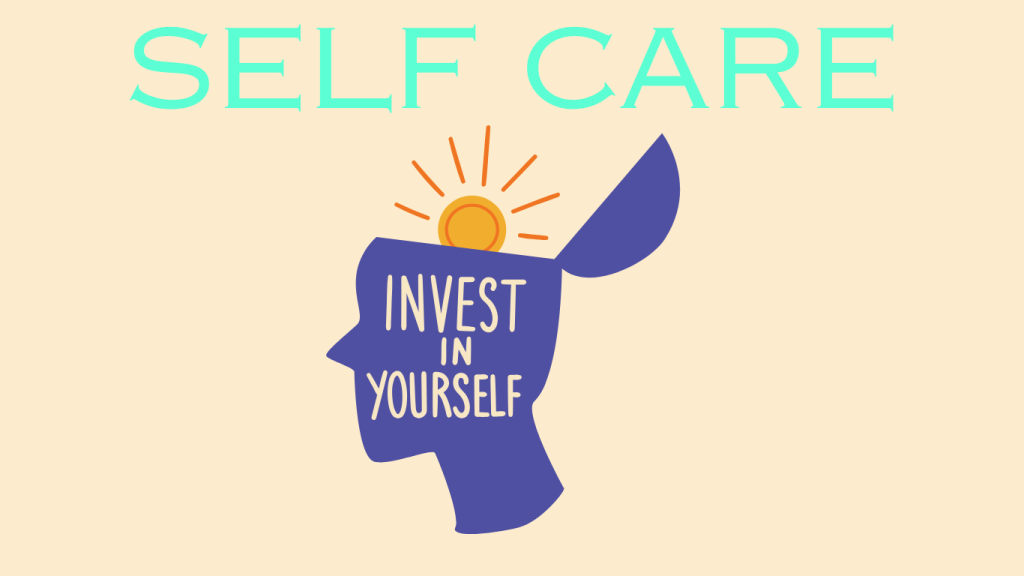The Art of Taking Time for Yourself: Why Self Care Isn’t Selfish

In our hyperconnected, always-on world, the idea of taking time for yourself can feel almost revolutionary. We’re conditioned to believe that productivity equals worth. This pressure to accomplish more can make self-care feel secondary, as if it should only come after everything else is done. Busy schedules signal importance, but carving out time for yourself amidst a busy schedule can be a real challenge. And yet, putting ourselves first is somehow seen as selfish. But here’s the truth: taking time for yourself isn’t a luxury—it’s a necessity.
Table of Contents
The Permission You Don’t Need (But Deserve)
You don’t need anyone’s permission to prioritize your well-being, yet so many of us wait for it anyway. We convince ourselves we’ll take that break after the next deadline, plan that solo trip once work settles down, or finally start that hobby when life gets less hectic. The problem? Life rarely gets less hectic on its own. That’s why planning and intentionally finding time for yourself is essential—self-care doesn’t just happen by accident; you have to make it a priority.
Taking time for yourself means recognizing that your needs matter just as much as everyone else’s. It’s about understanding that you can’t pour from an empty cup, and that caring for yourself enables you to show up more fully for others.
What “Me Time” Actually Looks Like
Self-care isn’t just bubble baths and spa days (though those can be wonderful). It’s deeply personal and varies from person to person. Self-care can involve trying different things to see what works best for you, as everyone’s needs and preferences are unique. For some, it might mean:
The quiet moments: Reading a book without interruption, taking a walk without your phone, or simply sitting with your thoughts over morning coffee. Make the most of free time or little time, even if it’s just a few minutes, and recognize and protect these small moments throughout the day for self-care.
Creative expression: Writing in a journal, painting, playing music, or any activity that lets you create rather than consume. Listening to podcasts or audiobooks while doing routine tasks can also be a great way to recharge and make everyday chores more enjoyable.
Physical restoration: Whether it’s a workout that energizes you, stretching that releases tension, or getting the sleep your body actually needs. Adding self-care activities to your to-do list can help ensure they actually happen.
Mental space: Meditation, therapy, or simply saying no to commitments that drain rather than fulfill you.
Social connection: Time with friends who energize rather than exhaust you, or conversely, embracing solitude when you need to recharge.
- Scheduling regular ‘me time’ and treating it as a non-negotiable part of your routine can help prevent burnout and improve your overall well-being.
- Set a date with yourself to enjoy an activity alone, prioritizing your own well-being and making self-care intentional.
The Ripple Effect of Self-Care
When you consistently make time for yourself, something interesting happens. You become more patient with others because you’re not running on empty. Your creativity flourishes because your mind has space to wander. Your relationships improve because you’re engaging from a place of choice rather than obligation.
You also model healthy boundaries for those around you, showing others that it’s okay to prioritize well-being. This is especially powerful if you’re a parent, partner, or leader—your actions give others permission to care for themselves too. Involving family members in sharing responsibility and seeking support from your family can make self-care possible. Taking time for yourself positively impacts the different lives you manage—personal, family, and work. Don’t hesitate to ask for help or delegate tasks to someone else; sharing responsibilities ensures everyone has the opportunity to recharge and maintain balance.
Overcoming the Guilt
The guilt that comes with prioritizing yourself is real, but it’s often based on outdated beliefs about what it means to be a good person, parent, or employee. It’s common to feel guilty, especially for parents or those caring for kids, when taking time for yourself. Remember, you don’t need to be accomplished or meet certain milestones to deserve self-care. Consider reframing self-care as an investment rather than an indulgence. Just as you wouldn’t expect a car to run without fuel or maintenance, you can’t expect yourself to function optimally without care and attention.
Start small if the guilt feels overwhelming. Even fifteen minutes of uninterrupted time for yourself can make a difference. Taking time for yourself can also boost your self esteem by allowing space for self-reflection and personal growth. Many people are struggling to find time for themselves, especially when balancing the needs of kids and other responsibilities. Notice how this small act affects your mood, energy, and interactions with others. Use this awareness to gradually expand your self-care practice.
Setting Healthy Boundaries
Setting healthy boundaries is essential for protecting your mental health and ensuring your well-being in daily life. When you set boundaries, you give yourself the space to recharge and practice self care, even when life feels overwhelming. This might mean carving out personal time each day—an hour to take a walk, enjoy a quiet break, or simply sit and take deep breaths away from household chores and constant demands.
Learning to say “no” to tasks that don’t serve your health or happiness is a powerful act of taking care of yourself. For example, you might decide that after a certain hour, you won’t answer work emails or take on extra responsibilities that drain your energy. By setting these limits, you protect your ability to show up fully in all areas of life, and you create more opportunities to feel happy and fulfilled.
Remember, setting boundaries isn’t about shutting people out—it’s about making sure you have enough energy and space to be your best self. When you prioritize your own needs, you’re better equipped to handle the ups and downs of daily life and to support others from a place of strength and health.
Making It Sustainable
The key to maintaining a self-care practice isn’t perfection—it’s consistency and flexibility. Some days your time for yourself might be a long hike; other days it might be choosing not to check email after 8 PM. The important thing is that you’re regularly checking in with yourself and honoring what you need. Aligning your self-care with your personal priorities is crucial, but finding time for yourself can be challenging in a busy life.
Consider scheduling time for yourself just as you would any other important appointment. Put it on your calendar, and treat it with the same respect you’d give to a meeting with your boss or a doctor’s appointment. Set aside specific hours for self-care to ensure you have enough time to spend time alone and enjoy meaningful alone time. Making self-care a regular part of your living routine is essential for the long run.
Creating a Self-Care Plan
Creating a self-care plan is a helpful way to make your mental health and well-being a priority, even when your daily life feels packed with responsibilities. Start by exploring what self care means to you—maybe it’s spending time outdoors, doing a bit of exercise, or simply taking a few deep breaths to reset your mind. The key is to start small: choose one activity that makes you feel happy and schedule it into your day or week, just like any other important commitment.
For instance, you might plan a short walk during your lunch break, set aside time to write in a journal, or make it non negotiable to spend a few quiet moments alone each morning. As you begin to incorporate these practices, you’ll likely notice a boost in your energy and a greater sense of focus, making it easier to manage your schedule and tackle your responsibilities.
A self-care plan doesn’t have to be complicated. The most important thing is to make it a regular part of your routine, so it becomes as natural as any other healthy habit. By prioritizing your own health and well-being, you’ll find it easier to handle the stresses of daily life and maintain a sense of balance, no matter what comes your way.
Conclusion
Taking time for yourself isn’t about becoming more productive (though you might). It’s not about earning the right to rest (you already have it). It’s about recognizing your inherent worth and treating yourself with the same compassion you’d show a dear friend. The benefits of taking time for yourself include improved well-being, reduced stress, and a greater sense of balance in your life.
In a world that profits from your exhaustion and thrives on your constant availability, taking time for yourself becomes a radical act of self-respect. It’s a declaration that you matter, that your well-being counts, and that you’re worth the investment of time and energy. It’s important to recognize the point at which you need to take time for yourself, before reaching burnout, so you can proactively support your mental and emotional health.
Your future self—the one who feels more balanced, creative, and alive—is already thanking you for whatever small step you take today. The question isn’t whether you deserve time for yourself. You absolutely do. The question is: what will you do with this reminder?
Start where you are, with whatever time you have. Take care of yourself and make it a priority to take time for your own well-being. Your well-being is worth it, and so are you.

